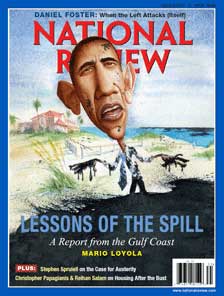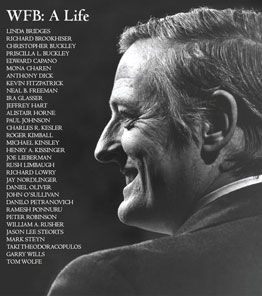
FGF E-Package
The Confederate Lawyer
July 28, 2010
A Venture in Triviality
by Charles G. Mills
fitzgerald griffin foundation
 |
 |
GLEN COVE, NY — In August 1945, Time Magazine published a letter from William F. Buckley, Jr., that made a connection between Catholicism and anti-communism. Buckley eventually became chairman of the Yale Daily News and founder of National Review, the catalyst for late-twentieth-century conservatism. Many people believe that the magazine’s mission ended with the election of Ronald Reagan as President; the truth is that its mission faded long before that.
In the late 1940s and early 1950s, many social scientists viewed American conservatism as a product of a Calvinist “Protestant ethic” and viewed Catholic social teaching as requiring statist measures such as minimum wage laws and land redistribution. Furthermore, they considered American conservatism to be the exclusive product of eighteenth-century liberalism and saw contemporary liberals as the heirs of Burke and Hamilton.
Catholics played a strong role in founding National Review, which challenged these views. The new magazine created a synthesis of free enterprise and tradition. Buckley skillfully employed incisive analysis and biting commentary to expose the absurdities of contemporary liberalism. Morrie Ryskind and Aloise Heath wrote brilliant humorous articles. Russell Kirk articulated the roots of our culture. Frank Meyer put forward a rigorous explanation of the relation between liberty and tradition under our Constitution. L. Brent Bozell, with his uncompromising opposition to tyranny, was in some ways the best of the lot.
Something started to go wrong as early as 1961. The Blessed John XXIII, concerned about the danger posed to the Church by increasing rejection of its teaching authority, published his encyclical, Mater et Magistra, defending that authority. Buckley criticized the encyclical in National Review, charging that it did not address the real problems of the day. He termed it a “venture in triviality.” Although he had a clear right to do this, the liberal press tried to paint his criticism as apostasy.
Buckley, who seems to have never really been interested in the internal affairs of the Church, had simply missed the point. His real mistake was to have Garry Wills write a book-length defense of him. Wills eventually became one of the major rebels against the Church’s authority; under his influence, National Review began to become a home for dissident Catholics, especially on the issue of contraception.
In 1964, Barry Goldwater was nominated for President and lost badly. In retrospect, many conservatives believed that they had tried to take in one bite what they might have attained if they had tried two bites. For this approach and other reasons, Nixon was elected President in 1968.
L. Brent Bozell left National Review and in 1966 founded a strongly Catholic and strongly conservative magazine, Triumph. In 1969, Triumph published a two-part series called “Letter to Yourselves.” In the series, Bozell argued that the conservative movement had embraced Nixon and abandoned anti-statism, nationalism, anti-communism, and constitutionalism. National Review did not even wait for the second part of the series before launching a scathing attack on Triumph.
This argument not really about anti-statism, nationalism, anti-communism, and constitutionalism; it was really about National Review. National Review was creating a form of conservatism that would be acceptable around the fashionable dinner tables of Fifth Avenue and Georgetown. Sensing that Bozell had seen through it, National Review struck out at him.
Over the years, National Review tended to make peace with American degeneracy. In the process, it chased away a number of real conservatives in the traditions of Taft, MacArthur, McCarthy, Bricker, and Thurmond.
One such person was Pat Buchanan, a conservative who understands and appeals to the American people. While Buchanan does not fully appreciate all the consequences of his tariff policies, that was not National Review’s objection to him. Instead, the magazine engaged in a campaign of defamation and falsely tried to depict him as prejudiced against Jews.
Similarly, National Review fired Joe Sobran, one of today’s best writers and soundest Catholics, pulling out the same false charges of anti-Semitism. The magazine also fired Ann Coulter. Her offense was that she exposed the lies of liberalism with sarcasm. Indeed, she speaks much like Buckley had when he was as young as she.
National Review may be the favorite conservative magazine of the ruling class, but to true conservatives it is the real venture in triviality.
The Confederate Lawyer archives
The Confederate Lawyer column is copyright © 2010 by Charles G. Mills and the Fitzgerald Griffin Foundation, www.fgfBooks.com. All rights reserved.
Charles G. Mills is the Judge Advocate or general counsel for the New York State American Legion. He has forty years of experience in many trial and appellate courts and has published several articles about the law.
See his biographical sketch and additional columns here.
To sponsor the FGF E-Package, please send a tax-deductible donation to the:
Fitzgerald Griffin Foundation
344 Maple Avenue West, #281
Vienna, VA 22180
1-877-726-0058
publishing@fgfbooks.com
or donate online.
@ 2025 Fitzgerald Griffin Foundation